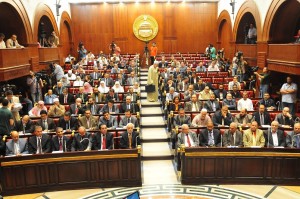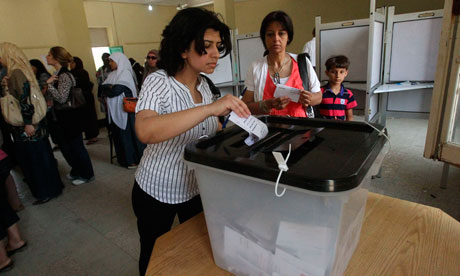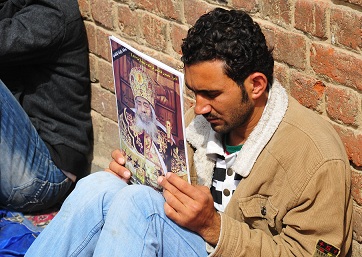
(DNE/ File Photo)
The Shura Council’s Committee on Constitutional and Legislative Affairs approved in its Wednesday session three proposals for amendments to the judiciary law, amid fierce debate.
The committee will now refer the three proposed bills to the upper house of parliament to discuss in plenary before voting on and referring the bills back to the committee to debate and amend.
Several committee members argued that amendments to the judiciary law should be left to the House of Representatives, parliament’s lower house, upon its election in order to avoid conflict between the judicial and legislative branches after several judges signalled their disapproval of the amendments.
Others, such as committee chairman Mohamed Touson, said the Shura Council would seek the approval of the Supreme Judiciary Council before making amendments, while Salafi members suggested letting the SJC draft the amendments itself.
The Wednesday discussion is not final, however, and the committee only approved the three proposed bills for discussion and placement on the Shura Council’s agenda. The actual content of the bills was not discussed.
Opposition Shura Council members such as Mohamed Mohi El-Din criticised the way the voting was conducted after Touson only asked for votes approving the discussion of the bills and neglected to count the votes of those who disagreed.
The Salafi Al-Nour Party parliamentary bloc leader Abdallah Badran got into an intense argument with moderate Islamist Al-Wasat Party Council member Atef Awaad and other members had to separate them. Al-Wasat is responsible for one of the three proposed bills.
Essam El-Erian, the leader of the Muslim Brotherhood’s political wing the Freedom and Justice Party’s parliamentary bloc, said amending the judiciary law, specifically the section on appointing the prosecutor general, was a constitutional necessity but affirmed that the constitution also stipulates consulting the judiciary before legislating on matters affecting it.
He lent his voice to those suggesting running the bills by the Supreme Judiciary Council or letting it draft the amendments itself and referring them to the Shura Council for discussion.
Shura Council Speaker Ahmed Fahmy had referred two proposed bills to the committee before the meeting. The committee was initially scheduled to discuss only the Al-Wasat’s proposed bill. Government representatives failed to turn up to the committee meeting.
Proposed amendments to the judiciary law have caused controversy, with many judges and representative bodies such as the Judges’ Club rejecting it and calling it a “judicial massacre” as it lowers the retirement age from 70 to 60 and would subsequently replace over 3,000 judges.
The proposed bills came after a Friday protest called for by the Muslim Brotherhood at the High Court building with the objective of “purging the judiciary”, leading judges to feel attacked.
The National Salvation Front, the largest opposition coalition, called for protests at the Shura Council building on Wednesday if the upper house of parliament were to discuss amendments to the judiciary law.


